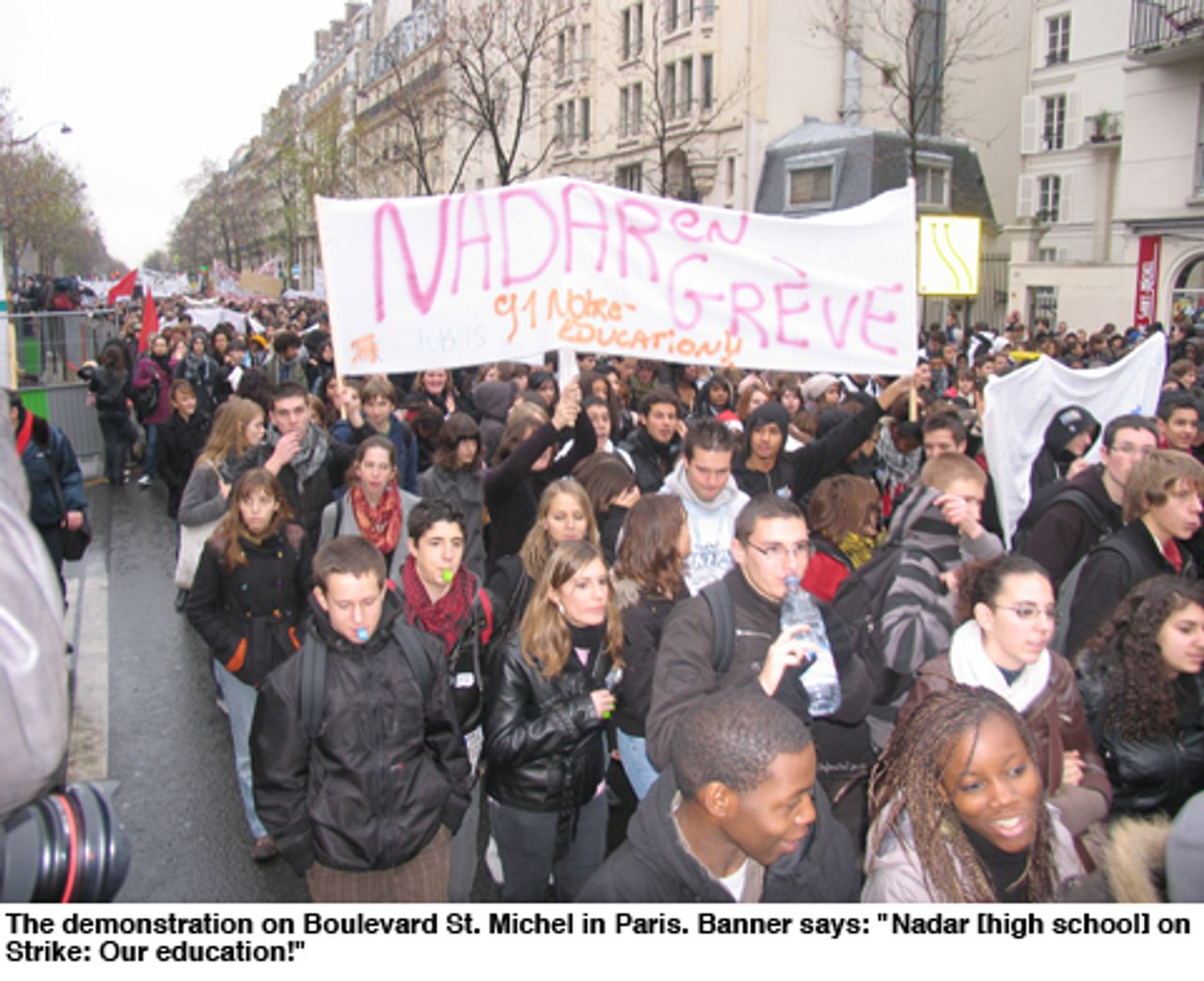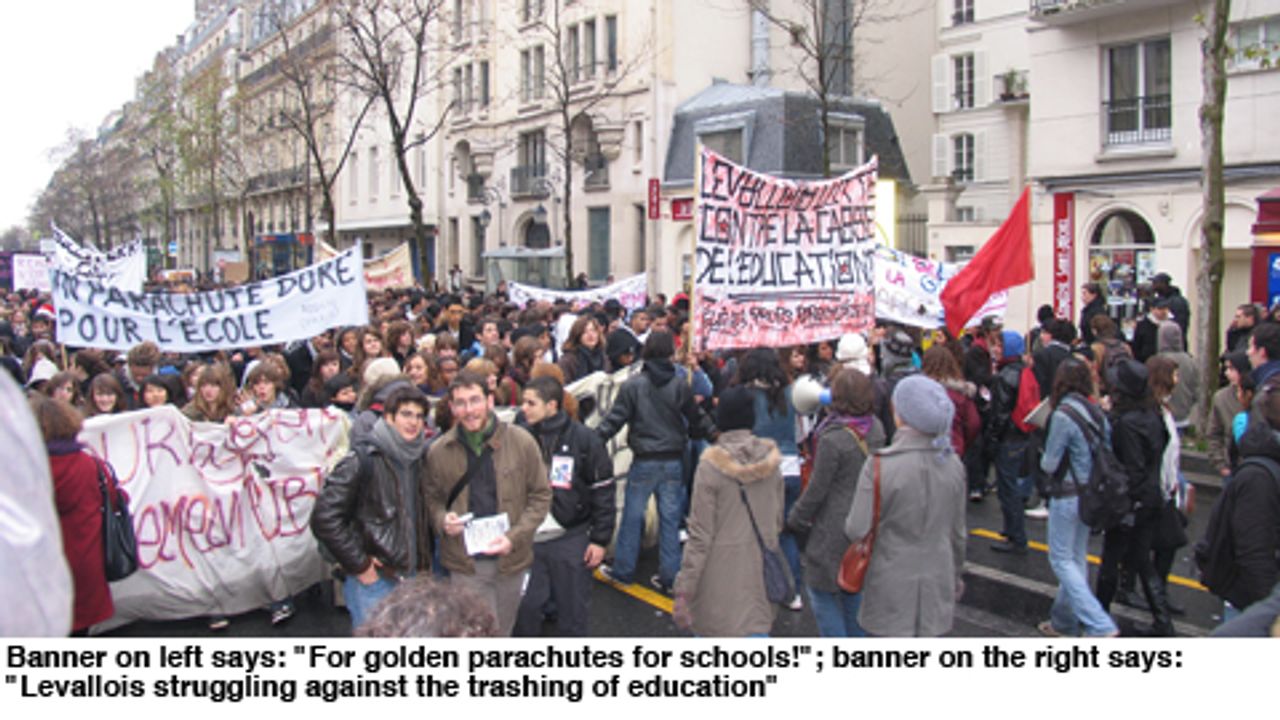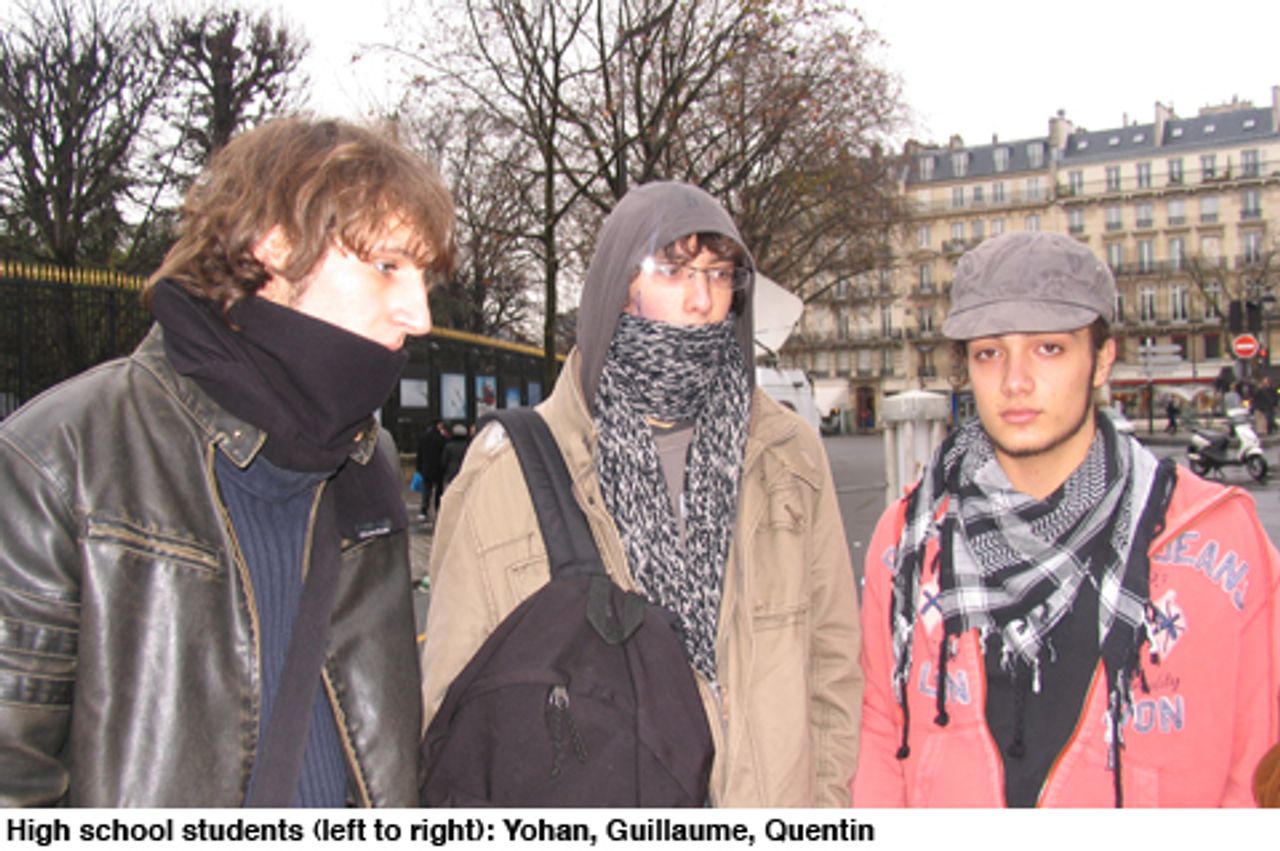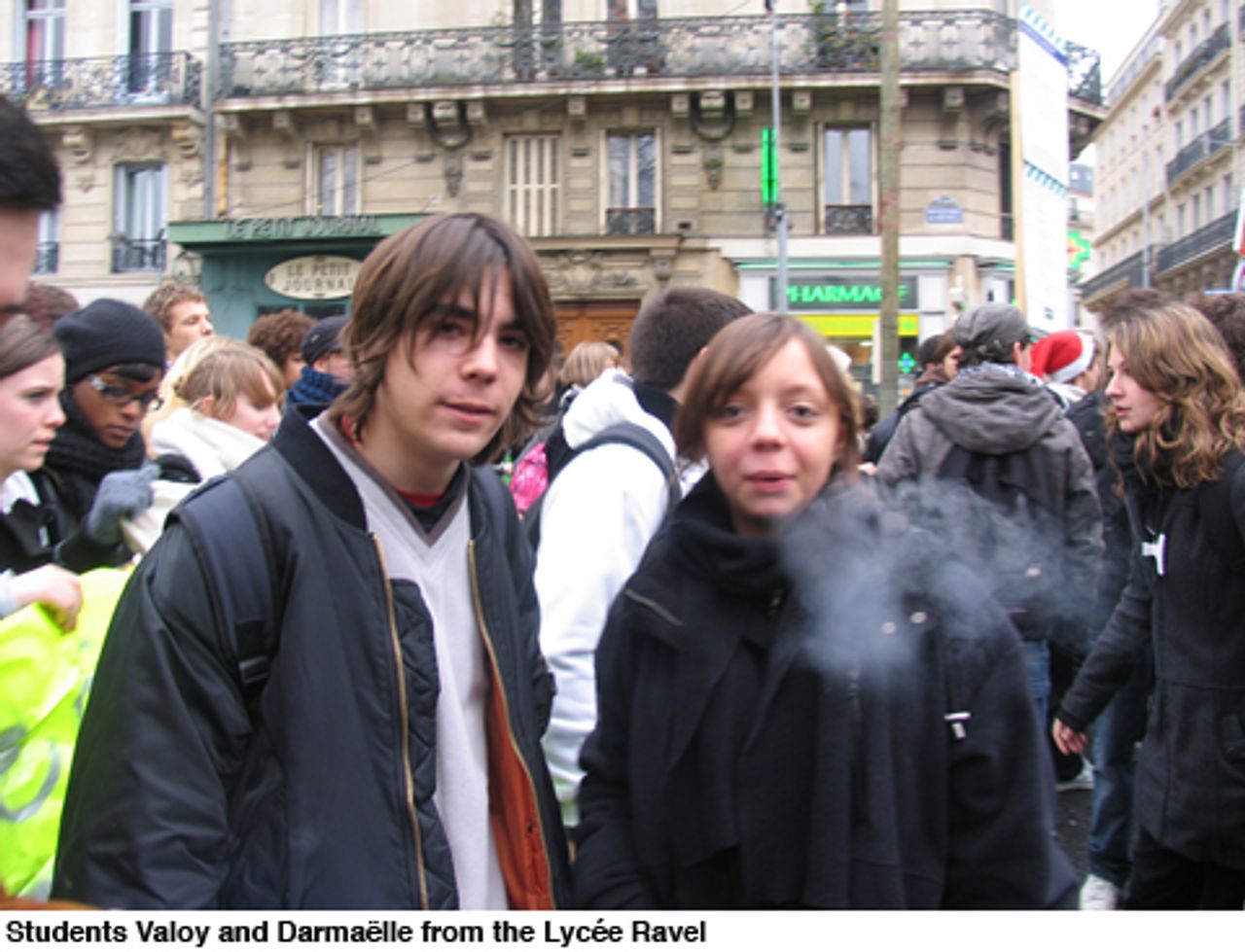 High school students demonstrated throughout France Thursday against a reform of high schools planned by National Education Minister Xavier Darcos. (See, “Amid fears Greek demonstrations could spread: Government postpones French high school reform”)
High school students demonstrated throughout France Thursday against a reform of high schools planned by National Education Minister Xavier Darcos. (See, “Amid fears Greek demonstrations could spread: Government postpones French high school reform”)
Press estimates of the number of demonstrators ranged from 80,000 to 160,000, both unusually large figures for a high school demonstration. This reflects growing social discontent fueled by the financial and industrial losses due to the ongoing economic crisis, and the eruption of mass anti-government protests in Greece.
Darcos' reform has provoked widespread opposition because it would result in 13,500 job losses in teaching and decrease the number of hours spent on several subjects, such as history and geography.
Darcos announced on December 15 that he would postpone passing the law through the National Assembly, where the ruling conservative UMP has a large enough majority to ensure passage of the bill.
Students are broadly aware that despite the postponement, the government still plans on implementing Darcos' reform. Students also opposed a call for a national strike and day of mobilization on January 29 by the student and trade unions: this was widely understood as an attempt to break up the development of the protest movement, by delaying the next major demonstration for over a month.

Speaking Wednesday before the Council of Ministers, President Nicolas Sarkozy said, "The work of reforms will continue. [...] Xavier has decided, as you know, to give himself the time to explain why the high schools must be reformed and how it must be done. I have approved this proposition because I firmly believe that this reform is essential for our youth, and it must come to fruition."
Demonstrations took place in all regions the country: 5,000 students marched in Rennes and Nancy, 2,500 marched in Caen and Montpellier, and 4,000 marched in Marseille. In Lyon, where 10,000 students marched (5,000 according to police reports), police fired tear gas and students threw stones at the end of the march. There were reports that two cars had been overturned and the windows of a bus station smashed.
In Paris, students mounted blockades at 40 high schools out of a total of 105 in the region. Students from the Maurice Ravel and Hélène Boucher high schools blocked traffic on the Cours de Vincennes thoroughfare, and an estimated 13,000 students marched in the main demonstration along the Boulevard St. Michel, past the National Education Ministry. A team of WSWS reporters attended the demonstration at the Boulevard St. Michel.
A delegation of teachers from the FSU (Unitary Trade Union Federation) stood at the front of the column, with high school student unionists from the UNL (National High School Students Union) and FIDL (Independent Democratic Federation of High School Students) forming the main body. Placards from the Parti de Gauche (Left Party), a newly formed split-off from the bourgeois-left Socialist Party, had been attached to signs and bus stops along the path of the demonstration.
Conspicuous for their absence were the CGT (General Confederation of Labor) and CFDT (French Democratic Confederation of Labor) trade unions, which normally would have sent delegations in support to attend such a demonstration. This reflects the widespread disillusionment and hostility towards their close collaboration with Sarkozy, and the generally harsher popular mood. Nor was there a delegation from the Revolutionary Communist League (LCR), whose presidential candidate Olivier Besancenot has received prominent media coverage as an opponent of free-market policies.

The WSWS spoke to Quentin, Guillaume, and Yohan. Yohan explained, "We're against the elimination of teaching jobs, curricular reforms, especially since we're already crammed in at 50 students per classroom." He said that demonstrations in Greece were testimony to "a general feeling we've had enough: first it was just the anarchists in the street, then the entire population. Then maybe it will spread to all of Europe."
He added that the demonstrations should spread to include "all the professions" endangered by the economic crisis and Sarkozy's free-market reforms.
A WSWS reporter noted that Sarkozy plans to wait to pass the law until the demonstrations have subsided, which means that a successful struggle against the law requires a longer-term political perspective for struggle to bring down the government. Yohan replied, "It's true that the government is completely deaf to us; it views us with nothing but contempt."

Valoy and Darmaëlle from the Lycée Maurice Ravel said they were "against Darcos, because the law may have been pushed back a bit, but it's still there." Darmaëlle said, "Different courses of study end up being very different from one to another. It's very hard. Reducing the numbers of hours we receive instruction—what sort of an idea is that? All subjects, like history and geography, are important."
Valoy said, "We have to have more and more demonstrations, and clear out the high schools. We should have a national movement to block the schools."
Virginie said, "Postponing the reform is not enough—it must be immediately withdrawn. They could withdraw it. [These schools cuts] are none of [Darcos'] business. But for them it's just a question of money."
She added, "Something real has to be done about this crisis. You can't wait 6 years after getting your high school diploma to get a job. There is a real need for change, for action. If things spill over, if things change, that is a good thing. We're not here to break things, but we want to show that we do not agree with what is happening. People have to ask for our opinion."
